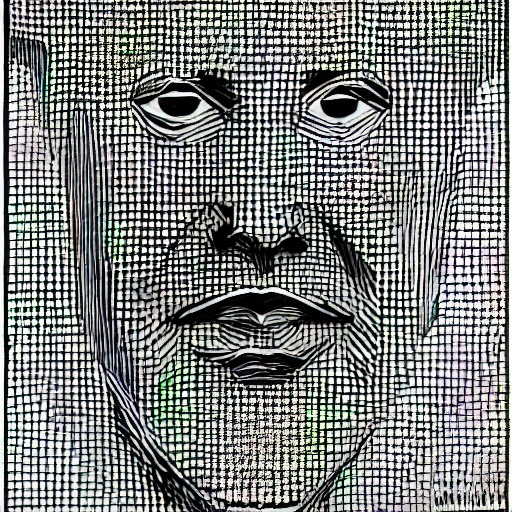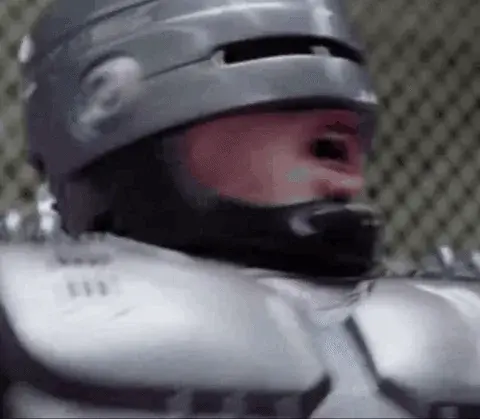I’ve always suspected my wife has this, and I just inquired. She said she can’t picture faces or things, but can recognize them. Her memories are more like feelings. I asked if she were separated from our daughter in an apocalypse, if she could remember what she looked like. She said, “I have no idea what she looks like right now.”
Now she’s in kind of a dark place.
deleted by creator
That would actually be a really thoughtful gift, OP should do that.
It’s hard to imagine… not imagining images. It’s such a weird perspective to think about.
This matches my experience. Everything and everyone has a feeling, not so much a word, or an image, or a number, but a simple to recall, and hard to explain feeling.
If she’s still in that dark place, ask her whether she can recall what your daughter’s “feeling” in her head. If she’s anything like myself, that feeling is the sum of her relationship with your daughter all in an instant. Not only is that something you probably can’t do that she can, it is an interesting way to perceive others. It helps a lot with code switching too, that same feeling of someone else also sets the tone with which you can effectively communicate with them in my experience, though it doesn’t work on everyone.
This is the level that I am at and it’s hard to explain to people that, “no, I don’t remember so-and-so’s smile on their birthday.” Like the feeling of the experiences are there and an analytical capture is, but vision? Gone the second I don’t see it anymore
Yeah. I just talk the talk to most people, cause it’s easier. I’m lucky, though, that one of the people I’m closest to also has the full works of aphantasia, anauralia, and the other one I can never remember. Also AuDHD.
She’ll get through it. I had a similar experience, but it passed. I can’t picture my daughter in my mind, but I can describe her and recognize her and, as it happens, she has aphantasia, too. Indeed, I only realized I did because of her. She said that, because she is autistic and has always known how different she is, she knew it wasn’t just metaphorical when people spoke of “mind’s eye” and “picturing” things. Remind her of how much aphantasia frees her from. I wouldn’t trade.
It’s possible that she hasn’t got aphantasia, but something called face blindness (prosopagnosia). The Wikipedia might be an interesting read for you guys!
I was a decently rated chess player (nationally) in my youth and I have level 5 aphantasia i.e. I see nothing at all.
While I absolutely cannot play or picture game states without a physical board in front of me like most pros can, I had no great difficulty otherwise.
I practiced with a friend at the same general skill level that was very good at playing sans voir, which incidentally is how I realized I don’t have the same mental imagery as him. This was ~25 years ago, and I didn’t run into the word aphantasia until around 2020.
Wait, how do you get ranked for aphantasia? I did sure have it but have never had a name for it
As I understand it it’s simply differing amounts of realism in one’s recall.
I did discuss it briefly with my physician but he more or less shrugged it away as a novelty that can’t be helped. He showed me the chart on Wikipedia and mentioned the lack of information about it in general but also that there might be some overlap with autism.
I have a feeling that it’ll be a while before it can be adequately explained.
Aphantasia is a condition that prevents people from creating mental imagery . It is rare, affecting only about 4% of the global population… My visual memory is like looking through a frosted window. I see some colors and blobby shape and that’s about it.
4% is a pretty big chunk of the population. That’s 1 in every 25 people. Which makes it all the more insane that nobody realised it existed as a condition until just a few years ago.
It just doesn’t come up all that much. Folks live without knowing they are different.
And it is on a spectrum. Some folks is nothing others are can force a few pictures if they have to but aren’t clear. I dunno.
And then there’s the hyperphantastics. My friend can close her eyes and replay scenes in her mind like a movie! Blew my mind.
It really depends on how you define aphantasia. Often the VVIQ score is used, a vividness score ranging from 16 to 80.
About 0,8 % of people have a score of 16, and 3,9 % have a score <= 32. The figures are from one of the more recent studies. Other studies report similar figures, for example one study by Zeman found 0,7 % with a score of 16.
About ¼ of all people with visual aphantasia also have multisensory aphantasia (all classical senses and emotions).
I have all the senses, but not emotions. Didn’t know that was a thing!
I don’t see things in my head, it’s still blank but i can imagine the concepts. Do i have aphantasia? My dreams are vivid tho
I have total aphantasia and am exactly the same.
I found it very interesting to learn that they believe aphantasics can form the mental image, they just can’t access it. Minds are amazing!
Any mental imagery in general? Like through mind’s eye? Dreaming? I had a mind palace (like no joke) it took me years to build into something I could use, and I had a few seizures in relatively quick succession and I cannot imagine images with nearly the same clarity. My dreams are like trying to swim in molasses while wearing scuffed scratched glasses, and I haven’t been able to access my mind palace in years. Any time I close my eyes I just see vague blurry shapes and colors, there’s an environment there but I can’t see it. Now, I can still see faces and remember them, but imagining in my head kissing my girlfriend is impossible. Her face warps and melts and my mental vision goes fuzzy.
Removed by mod
We got a no-apple-seer over here
Removed by mod
Lol wtf are you on about. It’s realistic to you that people can have PTSD, hyperphantasia, photographic memory, schizophrenia, bipolar, blindness/deafness, multiple sclerosis, and all these other otherworldy experiences which most people wouldn’t believe without being educated on it, but not realistic that a portion of people have deficient or non-existent mental imagery? Or even that a portion of people have ADHD?
I seriously doubt that you know better than neuroscience&psychology researchers and people who have the disorder but alright.
Also aphantasia isn’t “no remember thingies”. Memory is complex and it isn’t reliant on your ability to project images into your vision.
I have never been able to actually mentally visualize something, I always thought “imagine being in your happy place” was a metaphor and not that you’re actually supposed to visualize a place. I have always took “visualize” to mean not literally putting it in your vision, but just thinking about the fact of a situation. The closest I have to actually being able to picture an image/object is dreams and sleep paralysis hallucinations lol. No amount of caffeine or concerta could possibly change that. You’re crazy if you think because you can’t imagine it that there’s a conspiracy of “so-called aphantasiacs and medical researchers” who are lying about the existence of lacking mental imagery.
I’m curious as to where you allegedly saw aphantasia being “debunked” because all there seems to be is crazies on internet forums (specifically, Reddit and ycombinator) who notably aren’t psychology researchers, have no qualifications regarding the matter, and are just random people who want to feel like they cracked the code. Often times it’s people who have never been able to visualize who think their deficiency of mental imagery is the norm and that most other people have never been able to visualize either.
I’m also curious as to whether you think developmental/congenital prosopagnosia is fake or if it’s just a phase like you think aphantasia is.
Removed by mod
“Neuroscience researchers” but you don’t post a source, just an essay on how invested you are in this being real.
These are by Rebecca Keogh (and others), an actual cognitive neuroscience specialist/psychology researcher who has a PhD from one of the most well-regarded universities in Australia. Here they establish that there is real evidence that aphantasiacs lack mental imagery, and finds that there is no evidence backing the claim that “aphantasiacs have mental imagery”. Keogh also has some works that delve deeper into mental imagery and how it’s a spectrum, including aphantasiacs and hyperphantasiacs.
Here’s Cleveland Clinic casually affirming its existence too.
I shouldn’t even have to give sources because I’m not the one claiming an abnormality in visual imagery is fake but here you go anyways.
It literally comes up immediately when you search for aphantasia research. You clearly have not even tried to find research on aphantasia. Now where are your sources? I notice you didn’t link any, at all.
MBTI testing is also horseshit.
??? Where in the god damn fuck did I mention MBTI or personality tests in general in my original comment?
I didn’t see it “debunked” on Hacker News and Reddit, those are the #1 aphantasia and ADHD havers in the entire world.
And yet you don’t mention where you “saw it debunked”, just stating that you totally did bro.
It’s hilarious you think something less rigorous than IQ testing is on the same level as PTSD
Again, you are being crazy, you are quite literally making up arguments to attack out of your ass.
I don’t know why you decided this is the hill for you to die on despite you clearly having no idea of what you’re talking about and most respected psychology & neuroscience/cognition researchers who have tackled the subject clearly not being aligned with your views on the matter at all, and what makes you think you have any authority to just call a scientifically measured and agreed-to -exist phenomenon fake, but go ahead and have a tantrum and pretend you know anything about the subject I guess.
If you respond with internet magazines or a shitty YouTube video essay as your source I’m gonna laugh myself to asphyxiation
Does Aphantasia also cause the development of superhuman levels of patience? Because my dude, i don’t know how you managed to entertain this troll for as long as you have. This whole thread was highly entertaining though, so thanks for that, lol.
(I know it goes deeper but i didn’t want to bury my comment that far down)
I just witnessed a murder lol
Removed by mod
Removed by mod
Removed by mod
You’re such an angry little so-and-so. Why do you care about what doesn’t concern you. Silly.
Imagining does not equal having a mental image. I see nothing when I close my eyes, even if I try to picture my child.
Says who?
Removed by mod
Absorb green colors haha. How many crystals should I carry while I do the absorption?
Removed by mod
Removed by mod
Removed by mod
I ain’t one down-voting you, but I have a horrible diet, rarely go outside, stare a screen for 16 hours a day, am constantly sleep deprived, and I can picture mental images just fine.
Well I don’t play chess in my head. That doesn’t stop me from being a reasonably decent chess player when there’s a physical board in front of me. I’m not sure why aphantasia would be considered relevant to chess?
Do you have it? I’m just curious how someone would plan multiple moves ahead without an image of changes to the board in their head.
“Well, if I move the bishop here, then it’s pinning the knight to the king. Then I can capture over here, threatening a fork.” etc.
I do. Feel free to ask further if you have more questions.
Basically, when I’m playing, and trying to look multiple moves ahead, at least for me it’s like a logic tree. Exactly like what you described. I just don’t visualise any images. To me, I’ll keep track that the bishop will be on this spot, this spot will be empty, etc etc. I just need memory for that, it doesn’t involve any imagery.
That’s fascinating. What about controlled squares? Like, visualizing the cross-shaped lines extending from a bishop? Or the asterisk-shaped lines extending from the queen?
In my head, I sort of “highlight” them like this:

Same thing, but with knowledge instead of colors. Like how you can (I assume) know your birthday without visualizing a calendar.
It’s funny that you mention it, because while I would of course “know” a date, any time I read one I always visualize a calendar at the same time.
Wow. That’s wild. I suspect a lot of folks here without aphantasia are wondering what it even means to “know” something without being able to see (or hear/smell/taste/feel/whatever) it in your head.
I guess I “know my birthday” by virtue of the fact that I hear the words “August 17th” (not my real birthday, but yeah) in my head when I casually wonder what my birthday is.
If I know my birthday is on a Wednesday this year, I can picture a calendar page with the middle square of the third row “highlighted” like The Picard Maneuver was talking about with controlled squares above.
For me, I’m not sure I can imagine “knowing” something without either hearing or seeing (or otherwise sensing via some anlogue of the 5 senses) it in some sense in my head.
If I ask you your birthday, I’d expect you to hear “August 17th” in your inner voice before answering. But if I asked you “is your birthday January 3?” would you have to mentally say your birthday before answering “no”? I’d assume not.
My inner voice is used almost exclusively for forming sentences before speaking or typing them. If I’m alone, not thinking of conversations, and not reading, there’s rarely anything there except maybe a song stuck in my head. My inner voice isn’t constantly there saying “let’s go switch over the laundry” and stuff.
Folks with aphantasia are also more likely to lack an inner voice.
I wouldn’t say my birthday in my head before responding. My inner voice isn’t so different from yours, except being in a conversation mine is silent. With typing as well mine isn’t always present. Typing on my phone I have to think the word to swipe it, but on a keyboard I sometimes just type.
I guess I “know my birthday” by virtue of the fact that I hear the words “August 17th” (not my real birthday, but yeah) in my head when I casually wonder what my birthday is.
That would describe my experience. Aphantasia only affects the ability to visualise something, not the mental voice that I believe everybody has.
Pretty much. I don’t visualise it with pretty colors, but I can look at the board and see their lines of control. I feel like you’re imagining aphantasia to be a lot more limiting than it actually is?
Maybe so then. In my mind, “seeing” the line that’s not there would count as visualizing.
Well you might be seeing an actual line. I’m mentally tagging the squares in that line as ‘line of control’. It’s like seeing somebody point a finger at something. I don’t need to visualise an actual line coming from their fingertip to be able to judge where they’re pointing at. It’s more a spatial thing than visualising an image.
IDK, it’s tough explaining how brains and thought processes work. They just… are.
This is why I’m always interested in talking to people about aphantasia. It’s like 2 people trying our best to describe colors to each other and wondering “are we talking about the same thing…?” the whole time.
Not an avid chess player, but as someone with aphantasia pretty much spot on for my experience.
A friend of mine has aphantasia. It seems like she has trouble with some board games but not with others. If she can stare st the layout of the board she’s usually fine. We’ve never played chess.
In addition to not being able to see anything in her head, she also cannot hear her own thoughts.
That last part is particularly interesting… So maybe it’s not just visual reasoning.
I think most aphantasiacs can’t hear their own thoughts, but I might be wrong.
She’s like the Helen Keller of thinking
I have a middling case of aphantasia. I can create a basic image, blurry shapes, low detail, etc. with a lot of focus and concentration. I struggle immensely with faces I haven’t seen a lot, and spatial orientation. Beyond that, I simply think in terms of words more than images.
As far as chess, this means I’m logically thinking out the moves, rather than mentally picturing it. I tend to get a bit overwheled trying to internalize the new board state after more than a couple of moves. I also don’t play chess much, though, and would probably simply train that ability by playing more, just like someone without aphantasia will train visualizing more board shapes ahead.
I just wanted to say I’m almost exactly the same way, and it’s kinda cool to see someone else stuck in this halfway point, lol. The way I describe it is that I can picture the concept of something in my head, but the moment I try to focus on any details, it gets warped or corrupted or simply won’t manifest any more detail. Same on struggling with faces/remembering people, not so much on spatial orientation.
While I haven’t played chess in a long while, I can kinda draw off my experience with similar games and logic problems I’ve worked on. I can kinda hold the concepts in my head, but not really visualize it. So I’ll not be envisioning the chess board, but I can still easily puzzle out “if I take this pawn, that one will take my rook, then I can take it with my knight”, etc.
Yeah, pretty much the exact same thing for me. I describe things as, I can get a single detail to pop, but then I lose the overall composition, and when I scale back to the whole image, it’s a different image.
Do you dream?
god yeah, i have aphantasia, but i also dream, so i often experience these unquantifiable dreams, which often bleed into reality, because my brain has never experienced anything other than “physically observing the world” so anytime i dream half the time my brain is just confused as fuck and considers it to be a real event that actually happened, because fuck it why not.
That has been the source of confusion more times than i’d like to admit. My more wacky and obviously not real dreams help a lot with that though.
it’s weird as fuck waking up, and having no mechanism to recall something that “happened” you have this like, weird fleeting state of emotion and vague comprehension of what happened. But no way to visually process it.
Yes, actually. Very vividly.
You have an abstract concept of the board in your head. The logical connections are still there, there’s just no image of a chess board that represents the moves. Basically the same way a computer thinks without images, too.
this was always my take on this discussion as well.
i think this whole phenomena is more or less a communication misunderstanding and a matter of semantics. I believe that the people who report not being able to “see the apple” are people more inherently capable of more introspection and other metacognitive tasks. they identify correctly that the “mind’s eye” is basically the brain imagining what sensations of vision a particular thing might elicit, the same way we might imagine the sensations of touching something fuzzy or imagine the sensations of tasting something bitter. I think very few minds can “project” visual imagination of an apple before the imaginer as thoroughly indistinguishabley as if you got real sensory input of an apple.
i think that people who claim to really see the apple are taking the imaginary sensation of vision as equivalent to the sensation of vision generated from real sensory input, and therefore presuming that it counts as actually seeing it. and those who claim not to see the apple are likely just noticing the difference and assuming they’re lacking because the imaginary sensations and actual the sensory stimulus are clearly different things.
we have a word for when people actually see things they cannot ordinarily distinguish from reality, even if they’re aware of them as such: hallucinations.
I have trouble visualizing faces in my mind. The more I focus on “seeing” somebody’s face the less accurate it is.
Can you visualise the correct number of fingers on hands? I fear you might be an AI.
Same for me. I can imagine objects but only very abstract faces
Hypoanphantasia is a thing, it means small anphatasia or rather very weak phantasia. The characteristic is a spectrum, not distinct categories. Very few people see nothing but also very few people see the chess board or faces in great detail.
It’s funny, people make aphantasia out to be a huge disability but ironically that just feels like a lack of imagination on their part. The things where you actually need to see images instead of just abstract thinking are pretty rare.
it’s not a significant disability frankly, that’s part of the reason it’s only just now received a lot of study. It’s more of a dysfunction than anything.
It is fundamentally a lack of imagination, we cannot imagine things, it’s impossible. Ironically, it’s quite helpful to some individuals, me in particular i really enjoy any sort of complex stated systems. I can really latch onto those and comprehend them pretty well. I can do artistic things for about fuck all though.
It is a lack of visual or sensory imagery, but not a lack of imagination.
yeah, but a large part of imagination is being able to visualize something in your imagination. Otherwise doing things like 2 + 2 in your head would count as imagination.
Also technically, not visual/sensory imagery, just the ability to visualize things in your mind. But that’s semantics so meh.
I have this and have often wondered if it works against me. I have also been weirded out that it’s normal for people to actually “see” pictures in their head ever since I found out about this.
Anyways yes. This must be why I am not great at chess. Let’s blame it!
I now have a mental picture of you sitting at a chess board straining to visualize it in your head and losing. At least you are spreading imagery to others.
What does it mean to visualize a chess position?
I don’t exactly “render” the board or pieces. It’s like when you look at a board, and then make connections and feel whatever you feel, I just recreate those things.
I assume it’s similar to other people, but the phrase “not being able to create images” sounds like people do “render” things in their head.
It’s not the same as seeing it visually, but yeah I’d say it’s a mental “render”. Sort of like how having a song stuck in your head isn’t the same as actually hearing it.
You move the pieces around in your mental picture of the board to reassess what the potential position would look like.
That’s so far removed from how my brain actually works, it might as well be magic. I simply stare at the board and make mental notes which spaces would have which pieces, but there’s nothing visual to it. Take away the board and I can’t do a thing to plan my next moves.
For the record, I also never have any songs stuck in my head. When listening to stuff, I can recognize wrong notes and such, but I cannot in any form listen to music in my head. Heck, I can barely hum the tunes of my favorite songs after listening to them hundreds of times.
It’s incredible how our brains can accomplish the same things in different ways.
It’s not like the average player can picture the full board state and play blindfolded chess like some GMs can, but I’d expect that it’s pretty normal to visualize pieces on potential spots for tactics.
I can imagine what the board state would be if my piece is there, I just don’t create a mental picture of it.
It’s not the same. Aphantasisa is the total absence of being able able to picture things mentally. I have it to a degree except it takes me some effort to picture things. I can’t imagine scenes from books. I get like a fleeting image.
like people who don’t have it? Chess is strategy, not art, or engineering.
Chess is a series of strategic moves. You just make them. Are yall out here experiencing some kind of bizarre 5d chess i’ve never experienced before?
source - me, i have it.
I just think about what moves they may make from what I can physically see. It works well enough but I’m not good at chess. That’s most likely my ADHD working against me though not the aphantasia. Maybe both lol.
Speaking of ADHD, I’ve been into chess lately and have found it to be a really good way to practice extending my focus and not taking mental shortcuts, like I’m prone to do.
I wonder if there are blind people with aphantasia.
I feel like the amount would either be close to none, or most of them.
most blind people who were born are aphantasic i think? Blind people who became blind often aren’t.
Don’t quote me on it.
TIL I have aphantasia











